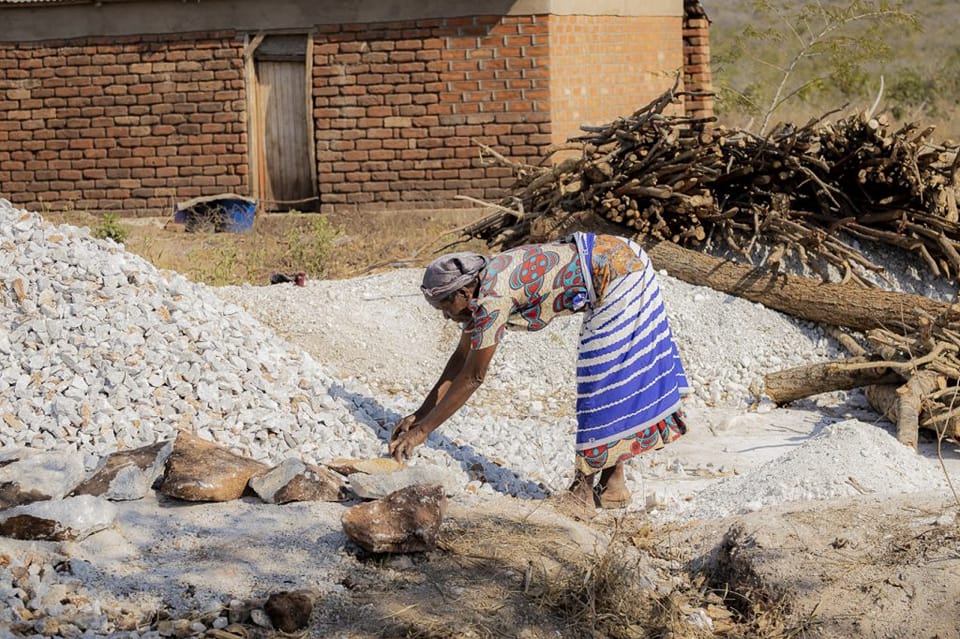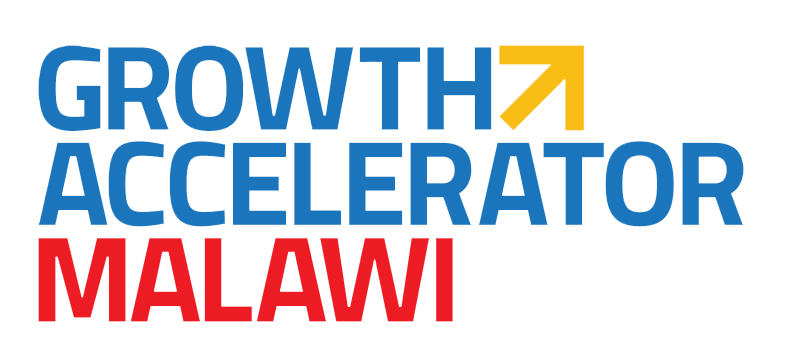
Earning a living through lime stone mining
A 72-Year-old Beatrice Manuka popularly known as Mayi Nyundo because of her long serving in the lime mining with her main tool, a hammer which she uses to break the stones.
Nyundo in vernacular meaning a hammer.
Manuka hails from Group village Headman Sayenda, T/A Nsamala in Balaka DIstrict started her lime mining business in 1994 after discovering that the land in her area was no longer productive to give her food needed for the family.
She explained that before that time she was able to cultivate crops like maize, cowpeas, cowpeas, sweet potatoes to feed her family and the surplus for sale which was used to buy basic necessities like soap, salt, sugar and clothes.
“We were able to feed ourselves from what we were getting from the farm year in and year out up to recent years when we discovered that the soils in this area can no longer produce,” she said.
Despite adding some fertilizers to the soils of this area, still more nothing was cultivated until someone revealed that the area is full of lime deposits which makes it difficult to cultivate the desired yield , she explained.
Manuka recalled that a businessman by the name of Abdul Pillane opened their eyes and introduced to them to start lime mining and sell to improve their livelihoods instead of depending on farming alone.
During that time, she said: “We started our mining and selling the lime stones to him since he was operating a lime factory and the only buyer for our products.”
Manuka further said the factory was buying the products from them in small quantities because the capacity for the factory to take in large quantities of the lime stone was still small.
After hearing about the good news of lime mining, she said, vendors started flocking in with competitive prices of buying the lime stones and we turned to them unknowingly looking for better prices but they disappointed us because they started stealing from us in the name of selling on our behalf otherwise acting as the intermediate buyers on trust.
On trust because they could take the lime stones to go and sell to other buyers here in Malawi and others could them to as far as Zambia where lime stones are needed.
Manuka said sometimes it was working as others were bringing in the money but the majority of them were not coming back to give them and we could not follow them up.
“We got a sigh of relief when a son of Abdul Pillane, Hazratt continued from what his father left after he passed away. He regrouped us to supply the stones to his factory,” she said.
Manuka said they formed a group of 300 women (miners) who are doing the lime stone mining and supplying to Balaka Limeworks Supply Company (BLISCOL) directly.
Since Hazratt took over, there has been a change in terms of capacity because we can supply as many packets of like as possible and with good price in turn.
Manuka said she has been making gains from the lime stone mining which has helped her to be paying school fees for her grandchildren, feeding the family, buying a bicycle thereby improving her livelihoods.
In three months alone from April, May and June she managed to sell 300 packets and received K350,000 at once from the company.
Honestly, Manuka said, the lime stone mining has helped to improve my way of living as I’m planning to do maintenance of the house by roofing it with iron sheets, floor with cement, adding another one bicycle as well as buying equipment like wheelbarrow and shovels to be used in my mining works.
Lime stone extractor from the same area, Mussa Chipolopolo 45 years said he earns a living through lime stone extraction which he sells them to BLISCOL.
“From the money I get from lime extraction, I bought a bicycle, mattress and I’m able to buy basic necessities like cooking oil, sugar, salt and maize flour among others for my house,” he said.
Chipolopolo said his plans are to buy iron sheets to roof his house by the end of this year.
BLISCOL Managing Director, Hazratt Pillane said his company empowered the communities to do the mining and sell the stones to the factory.
“As a company, we make sure that we buy the lime stones from them at a good price as part of the social impact to the community,” he said.
The factory needs more materials like lime stones which can be locally sourced from the communities to increase its production because it is no longer the way it was in previous years as it was slowly growing due to lack of funds and technical expertise in financial management to do business.
“Our business is growing as the production of lime has been increased from 10 to 40 metric tonnes per day hence the need for more lime stones to be used in the factory,” he said.
Pillane emphasized that the increase in production has been possible with a financial assistance from the Growth Accelerator (GA) which has been used to purchase a bigger Boremill to process lime in large quantity.
He added: “We have increased our customer base with more companies requesting for our products to be used in fertilizer, animal feeds and other usages.”
Pillane announced his plans to increase the capacity of his business further as more machines will be purchased for the expansion of the business ad be one of the major lime exporters.
As the business is expanding, he said, we will need more materials from the communities to be supplied to the factory.
